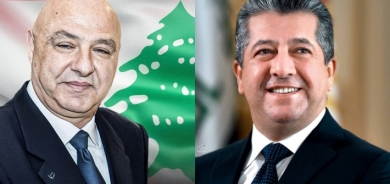Another big day in court over legality of Egypt’s constitutional body

The same court will also hear a separate legal case demanding the dissolution of the Brotherhood-led upper house of parliament, a move that would deal another blow to Islamists reeling from the dissolution of the lower house last month.
And legal cases against decrees issued by both the military council and President Mohammed Mursi will also be heard -- challenges to the authority of both which have once again put Egypt’s judiciary at the heart of a political battle.
Lawyers, who filed the appeals against the June 17 constitutional addendum issued by the Supreme Council of Armed Forces (SCAF), called for “limiting the army’s role to protecting the revolution and its achievements” and disallowing the military council from interfering in presidential prerogatives, according to a report published by the online edition of Egypt’s state-run al-Ahram daily.
The addendum, which gives the SCAF full legislative powers at the expense of parliament’s dissolved lower house and strips the presidency of several important executive privileges, has been roundly condemned by most of Egypt’s post-revolution political forces.
With opinions split on the likely outcomes, the cases add to the uncertainty hanging over a country whose transition from decades of army-backed autocracy continues to stumble even after a presidential election that many hoped would restore stability. The courts have repeatedly been a theatre for the struggle.
“The dispute between the Muslim Brothers and the SCAF is political in nature and a court decision will not help resolve it,” said Mustapha Kamel al-Sayyed, a professor of political science at Cairo University.
“Political mediation is necessary but is not forthcoming. There is no one to provide it. There is no trust, and there is no credible actor who is capable of suggesting a compromise,” he said. “Egypt is going through a stalemate.”
Field Marshal Hussein Tantawi, head of the army council that steered the post-Mubarak transition, appeared to up the ante on Sunday, saying the army would not allow a “specific group” to dominate Egypt.
The constitutional assembly, a 100-person body tasked with deciding Egypt’s new system of government, faces more than a dozen challenges from plaintiffs who object both to the way it was formed and the heavy influence of Islamists whose control over parliament gave them a major say in its make-up.
Were the court to deem the assembly illegal, the military council would pick the next one thanks to powers they assigned themselves on the eve of Mursi’s election.
The assembly is the major lever of power in the post-Mubarak era, deciding how much authority the new president will have and the role of a military that has been at the heart of power since army officers overthrew the monarchy in 1952.
The body is also debating the role of Islam in Egypt’s new politics. Non-Islamists have been alarmed by proposals emanating from the current chamber that appear to give the new constitution a more Islamic tone.
Legal opinions are split on the likely outcome of Tuesday’s hearing, though Brotherhood leaders have appeared downbeat on the chances of the assembly surviving.
The legal challenges to the body echo those made against a previous constitutional assembly. Also stacked with Islamists, that assembly was suspended by a court in April.
The legal grounds included the fact that the body included members of parliament, a flaw repeated in the current assembly, said Shahata Mohammed Shahata, a plaintiff lawyers who says he is deeply worried by the Islamists’ sway over the body.
“Where are the poets? Where are the artists?” he asked.
In steps seen as attempts to preempt Tuesday’s hearing, all members of the upper house of parliament sitting on the assembly resigned from the body on Sunday. Mursi, meanwhile, approved a law passed by parliament just before it was dissolved and which set out the rules for how the assembly should be picked.
The Brotherhood’s newspaper described it as a law “fortifying” the constitutional assembly.
Mahmoud Ghozlan, spokesman for the Muslim Brotherhood and a member of the constitutional assembly, declined to give any predictions of what might happen on Tuesday. But he said the indications in general were not reassuring, according to Reuters.
The courts have already been a crucial battle ground in the 18 months since Mubarak was removed from power.
Critics say the judiciary is still filled with Mubarak-era appointees, stacking the odds against the Islamists. The judiciary fiercely rejects suggestions of a political agenda.
Major rulings included the June verdict declaring the Brotherhood-led parliament illegitimate. Still in full power at the time, the military council dissolved the chamber on the basis of the ruling.
In a presidential decree, Mursi last week ordered parliament to reconvene in a challenge to the generals. His decree was then overturned by the Supreme Constitutional Court. One of the other cases to be heard in the administrative court will also challenge Mursi’s right to issue the decree.
In another of the cases, a group of plaintiffs are seeking the dissolution of the Brotherhood-led upper house of parliament on the grounds of the ruling that dissolved the lower house.
Another case challenges the legitimacy of the constitutional decree issued by the generals on the eve of Mursi’s presidential election victory. That decree expanded the military council’s powers, partly at the president’s expense.
Reuters













